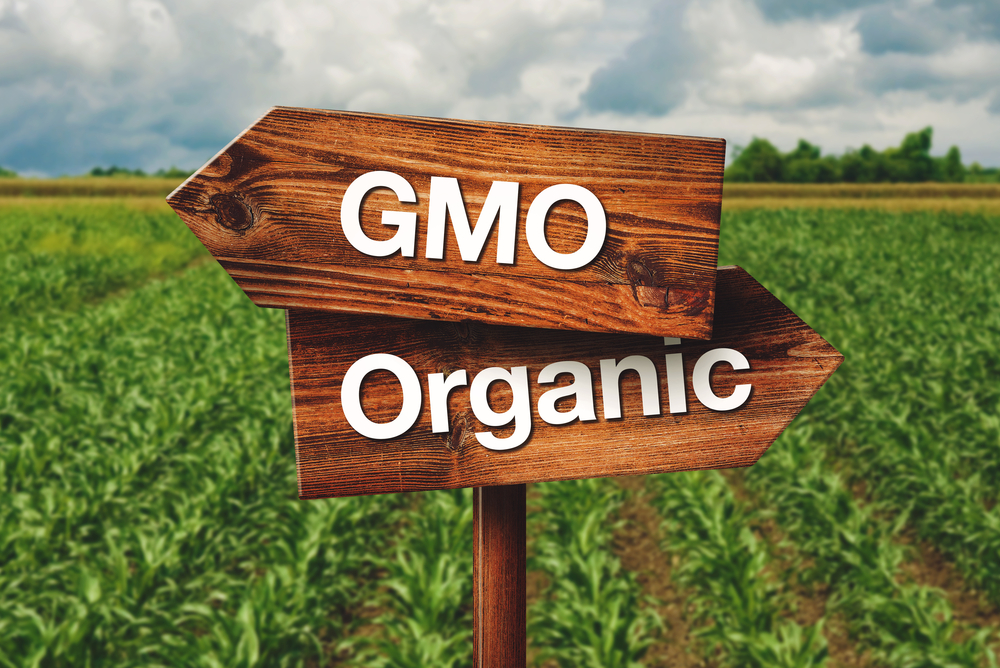Autism diet and GMO foods: “I don’t understand what I’m doing wrong,” the mother of a 12-year-old autistic patient said to me when we started working together. “I’ve cut out GMOs and put my son on a healthy diet and he is not getting any better.”
Sadly, this is something I hear daily in my practice.
Flashy headlines and celebrity stories will have you believe that GMOs and vaccines are to blame for the alarming rates of autism in our world today, but these things are only one factor, what we call environmental triggers, that comprises the set of behaviors we describe as autism.
Of important note: our definition of autism, as defined by Dr. Mensah of Mensah Medical, is much narrower than conventional medicine statistical data which includes Asperger Syndrome and conditions like Pervasive Developmental Disorder-Not Otherwise Specified (PDD-NOS). Those studies are using ASD as an umbrella term that incorporates disorders that are not autism.
The missing link in autism requires a paradigm shift in thinking that must include genetic susceptibilities, environmental triggers, as well as timing, and development.
Autism: What’s Going on Biochemically
Autistic individuals suffer from a severe amount of oxidative stress, abnormal methylation biochemistry, and dysfunctional enzymes that cause food sensitivities, malabsorption, gut inflammation, and abnormal intestinal permeability. When triggered by environmental assaults, the effects can be devastating. Underlying chemistries include low zinc, toxic levels of copper, low vitamin D, and impaired B6 processing to name a few. Biochemical imbalances are far more sensitized in autism than any other condition making it so much more intense.
Autism Diet: the Role of GMOs and Other Environmental Triggers
Genetically modified foods and their chemicals (such as Monsanto’s glyphosate Round-up), vaccines, water, and air pollution, are mere triggers to a preexisting, underlying, genetic predisposition. They are important, (and have greatly contributed to our overall genetic decline) but not the “single most important factor in the autism epidemic” as some would have you believe. It’s headlines like these that make treatment so confusing for individuals and caregivers alike, as all factors require equal attention in the care and treatment of autism.
Keep in mind that any substance that is tolerated by one individual may not necessarily be tolerated by another. Any substance that is tolerated by itself may not be tolerated in the presence of other substances (synergistic toxicities). In other words, there’s no one size fits all. The take home is that an organic whole foods diet devoid of GMOs, gluten and dairy products is not enough. The diet must be custom tailored to the patient’s biochemistry.
In fact, many foods that are deemed healthy and nourishing, such as bone broth, can create immediate, violent behavior in an autistic individual. In the case of bone broth, it was the free glutamates that created what my patient’s mother called a “Jekyll and Hyde-like transformation” of violent, verbal outbursts, whereas just minutes before consumption, she was a “sweet girl.”
Using Synergistic Efforts in Autism Treatment Through Biochemistry
I have found that synergistic efforts work best in the treatment of autism. For example, when dietary changes are in synergy with immune modulation and strategies to correct methylation and transsulfuration, the patient responds very well. As a result, many of the behaviors associated with autism, such as stimming, violent rage, severe anxiety, depression, lashing out, and emotional instability, are greatly diminished.
Tips for Adult and Adolescent Caregivers
Figuring out what to eat is often very difficult because the autistic patient is inherently picky and also afraid of food. This is because, to them, it’s a “monster that makes me feel bad.” Sadly, I speak with too many folks that do not realize the impact food has on themselves or their child and miss this important part of treatment.
We live in a world where home preparation and planning of food is a must. This is one of the most important things you can do for yourself or your child. If you are going to be out of the house for a while, pack a cooler with your food and some blue ice blocks. I do this all the time when I’m shopping. I simply pull out my cooler and eat in my car when I need to, then go about my day without the worry of where to find decent food that’s appropriate for my chemistry.
Adopting a regular eating schedule of protein-rich foods creates purpose and continuity. It also supports blood sugar regulation and the elimination of yeast toxicity, which is another common component of autism. Yeast feeds on sugar, and when it is consumed, will create drug-like effects and an intense desire for more. Even in small amounts, sugar can create a cascade of acute, adverse symptoms.
If there are textural challenges, food can always be masked with something else or broken down. For example, caregivers can mix ground beef with parsnip puree for palatability. This is also a good medium for taking powdered nutrients, such as inositol for calming, when pills are difficult to swallow.
Why a Non-GMO Diet Doesn’t Heal Autism
As I mentioned previously, there is no one size fits all even if two people have similar chemistry. Two autistic patients may have identical lab numbers, but the impact of those numbers will vary significantly. This also explains why food choices and guidelines must be custom tailored to the individual and adjusted over time. Again, an organic whole foods diet devoid of GMOs, gluten and dairy products is not enough. Keep in mind that most GMO-free products are still heavily processed, and are often loaded with sugars and additives that can significantly impact an autistic patient’s underlying biochemistry.
I cannot stress enough the importance of a custom-tailored diet to the healing process.
With compliance, I have found that adolescents and adults alike prefer home-cooked meals over fast or processed foods, especially when healing starts to really bear fruit. The key here is compliance and faith in the process.
Love,
Samantha Gilbert

Samantha Gilbert is a Nutritional Therapist and Certified Holistic Nutrition Practitioner who works with Mensah Medical patients on dietary plans that compliment patient biochemistry results. Samantha’s new clients receive a 1 hour comprehensive assessment from her. She provides them with an online assessment to complete prior to their initial phone consultation with her where patient health history, emotional traits and triggers, and environmental influences are discussed with her. Mensah Medical patients who become clients of Samantha Gilbert get a customized dietary protocol based on their biotype and nutrient protocol from Drs. Mensah and Bowman. She will also provide her clients with recipes and supportive action guides. All Mensah Medical patients receive a special rate.
